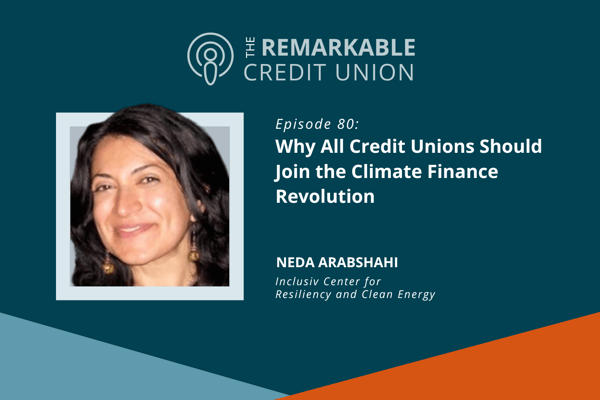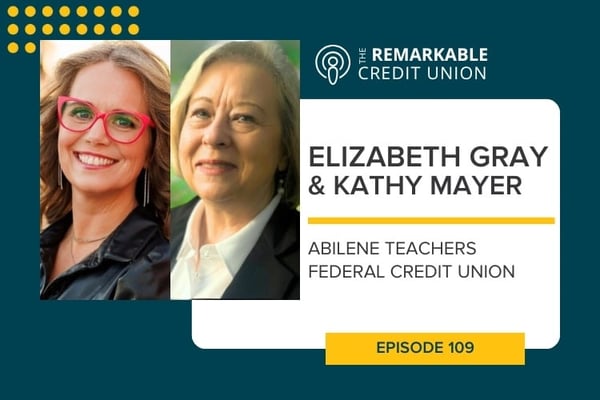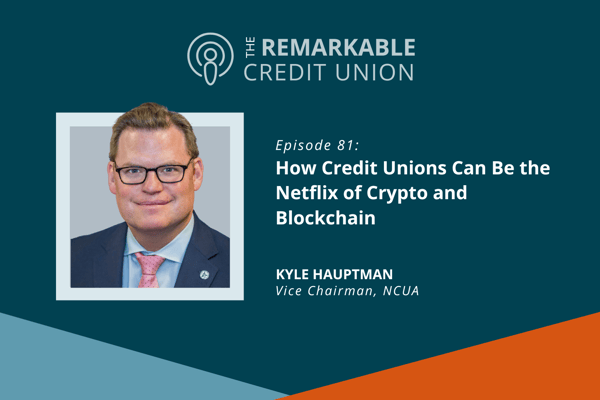When Disaster Strikes: How Credit Unions Are Uniquely Positioned to Respond

Does it seem like there are more disasters than ever these days? Hurricanes and fires, floods and avalanches, wars and collapsing infrastructure. Pick a media channel, and we can almost guarantee you’ll be greeted by news of a catastrophe on any given day.
The stats support the pervasive sense of doom.
According to the Emergency Events Database, there were 399 disasters related to natural hazards in 2023, which killed over 86,000 people—and exceeded a 20-year average—affected more than 93 million people, and cost more than $202.7 billion.
And these harrowing figures don’t include the impact of the more than 110 armed conflicts currently happening around the world. We’re all aware of Ukraine and Gaza, but those heartbreaking wars are just two among many.
Fortunately, there’s a bright spot amid the gloom: the role that credit unions can play during times of trouble.
Google some version of “How credit unions help in disaster,” and you’ll find plenty of heartening examples of credit unions stepping up to help people both in their own backyards and around the globe.
Why are credit unions so well-suited to help in tough times? Three critical elements are key.
The credit union system is oriented toward partnerships
When the going gets tough, there’s strength in partnerships, a core element of the credit union difference. Because they already have ties to local organizations, other credit unions, and credit union associations, credit unions can develop an effective, coordinated response in short order—including at the international level.
One powerful example is the inspiring partnership between the credit union systems in New York and Puerto Rico, especially those designated as Community Development Credit Unions (CDCUs). Both areas were impacted by storms that severely damaged their communities—Superstorm Sandy for New York and Hurricane Maria for Puerto Rico—and learned from each other in the areas of emergency response and member resilience.
Sadly, rising wildfires have offered ample opportunities to experience the value of credit union partnerships in recent years. When wildfires hit Washington and Hawaii in August 2024, credit unions were among the first to help frantic residents. The GoWest Foundation, the charitable arm of the GoWest Credit Union Association, worked with credit unions and individuals, raising nearly $45,000 to provide disaster relief after two destructive fires in Washington. The Foundation also supported the National Credit Union Foundation’s CUAid program to help those impacted by the Lahaina fires in Hawaii.
A report from the Filene Research Institute, Katrina 10 Years After: Lessons from Credit Unions and Banks, showed the critical difference the power of partnership made in the communities hit by Hurricane Katrina, one of the most devastating natural disasters in our country’s history. The presence of credit unions was positively related to job growth following Katrina and area credit unions’ asset growth exceeded natural averages. Interviews conducted during the research showed anecdotal evidence that “credit unions in the impacted area received help from other credit unions and support organizations, something rarely found with banks.”
The power of partnerships isn’t limited to our own country. Consider the many initiatives launched in the aftermath of Russia’s 2022 invasion of Ukraine. For instance, World Council of Credit Unions (WOCCU) offers low-interest business loans through the Resilience Initiative, launched by its partners the USAID CAP Project and Worldwide Foundation for Credit Unions (WFCU, strategic partners of WOCCU). WOCCU also supports another CAP Project, the Liquidity Fund, which helps Ukrainian farmers access affordable funding — efforts that are critical to local food security.
In May 2024, WFCU launched a campaign to raise $500,000 to support a program that offers loans to help veterans and their families start small businesses. And WFCU’s commitment to Ukraine precedes the war, with earlier efforts to fund underserved populations in rural Ukrainian communities.
Credit unions are able to quickly deploy funds and aid
Credit unions have a well-deserved reputation for flexibility and agility, fundamental differentiators in times of trouble.
This agility was evident in the Puerto Rican cooperativas that were on the ground helping members just hours after Hurricane Maria hit. According to this discussion with Pablo DeFilippi and Rene Vargas Martinez from Inclusiv, while many in the banking industry deserted the island or profited from the hurricane, CDCUs came to the rescue of desperate residents.
Puerto Rican CDCUs were up and running within 48 hours, knowing their members would be in critical need of their resources—one in three Puerto Ricans rely on their local credit unions or cooperativas. And in 17 of Puerto Rico’s 78 municipalities, the local cooperativa was the only place residents could get food, water, or electricity—in some instances even months after the storm!
Credit unions in fire-ravaged communities throughout the West have sought out and delivered on opportunities to serve—even when they faced hardships themselves. In the Spokane area, STCU took a multi-level approach to helping those affected by the Oregon and Gray Fire wildfires. They provided gift cards to help employees cover unexpected expenses and tapped into their COVID-era Member-in-Need Program to provide $28,000 in gift cards to members impacted by the fires. They also set up a skip-a-payment program and funded emergency loans.
California credit unions also have ample experience with the aftermath of fire. Patelco Credit Union supported victims of the Carr Fire through its disaster relief program, which provided access to no- and low-cost loans, reimbursed non-network ATM fees, deferred loan payments, and more. The credit union also packed thousands of pounds of food for distribution. And even credit unions whose employees and members were directly impacted by the fires stepped up to help.
Members 1st offered their branch locations as water collection sites, while Sierra Central donated $10,000 to a local community college that morphed into an evacuation center for displaced residents.
As so many members experienced firsthand during Covid, credit unions are quick to launch member-sustaining skip-a-pay programs and flexible loans when disaster hits. The Filene Katrina research found a credit union presence can help drive job growth—a top priority following a disaster. This was true even though this research covered a challenging period that included the Great Recession, damage to tourism and fishing by the 2010 BP oil spill, and other weather calamities.
Credit unions are likely to already have relationships with the community’s most vulnerable members
When it comes to disasters, low-income community members are extremely vulnerable. Most lack financial safety nets, making it difficult, if not impossible, to weather the job losses, costs of replacing destroyed personal items and assets, and health risks a disaster can create. They’re also more likely to live in areas disproportionately affected by natural disasters—and face additional risk as the likelihood of climate-induced or -exacerbated natural disasters continues to rise.
To add insult to injury, many lack the “hard information,” like credit scores, that financial institutions typically use to gauge whether a person qualifies for the (affordable) loans they’ll need to survive a disaster.
These realities mean credit unions are critically important in times of calamity.
As this article in American Progress highlights, credit unions, because they prioritize stronger personal relationships and tend to be located in physical proximity to their members, are masters of “soft information”—which they describe as things that can’t be found in a member’s financial record but help to illustrate their creditworthiness, such as an applicant’s honesty, commitment to hard work, and community standing.
Credit unions designated as CDCUs—institutions that specialize in serving populations with limited access to safe financial services and can tap into a variety of support and resources—will be even more critical. During Covid, The Kresge Foundation reported that CDCUs helped ensure that the unbanked could easily open their first accounts to access stimulus payments and that small at-risk businesses could tap into Paycheck Protection Program (PPP) funds.
In fact, research from Opportunity Finance Network found that CDFIs (certified Community Development Financial Institutions) did a better job making PPP loans than one of the country’s largest banks, success they linked to the system’s capacity to “reach the hardest to reach people and communities.”
The sobering reality is that the incidence and devastating tolls of natural disasters and war are nearly certain to rise. Credit unions have proven themselves invaluable partners in times of trouble thanks to a commitment to partnership, agility, and prioritizing the needs of our community’s most vulnerable.
When disaster strikes, credit unions should step up first and foremost because they care about their communities and genuinely want to lend a hand. It’s also a valuable opportunity to build trust and good will. Your members may not remember a fee that was waived on their checking account, but they will remember an unexpected gift card for a much-needed meal or the much-needed water they were able to collect at their local branch.
It’s often said that disasters remind us how to be more human. In this era of big data, AI, and tech-driven “personalization,” credit union responses in the wake of disaster are shining examples of humanity in action.
This article originally appeared in CUInsight.


